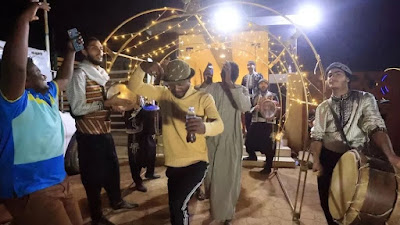RIGHT NOW IN SUDAN, over five million people have been displaced and many thousands killed. Twenty-four million people – half the population – need humanitarian assistance, 15 million suffer from acute food insecurity and 19 million children are out of school. Recent analysis has shown that at least 68 villages in Darfur have been burnt to the ground by armed militia in the past few months. The UK's APPG hopes that more can be done to stop the flow of arms to warring parties by putting greater pressure on their regional backers, enforcing the existing UN arms embargo on Darfur and extending it to the entire country. Read more in the following article.
From Politics Home, UK
Dated Thursday, 9 November 2023 - here is a copy in full:
The UK has a key role to play in fighting for peace in Sudan
October marked six months since the beginning of the war in Sudan and two years since the military coup that first dashed hopes of Sudan’s swift road to democracy. There is no clear winner and no end in sight.
Over five million people have been displaced and many thousands killed. Twenty-four million people – half the population – need humanitarian assistance, 15 million suffer from acute food insecurity and 19 million children are out of school. Of the $2.6bn required for humanitarian assistance, only $859m is available.
Members of the [UK Govt] All-Party Parliamentary Group (APPG) for Sudan and South Sudan met with Liela Musa Medani, a Sudanese woman who has previously lived in the United Kingdom for over 20 years. She escaped from Khartoum in July but remains in touch with family members. Of the 50 households that used to live in her street, only four remain.
For the past six months, they have faced killings and artillery shelling every single day. There is no food, and anyone who tries to transport food risks their life. There is no electricity, no water, no medicine and no humanitarian aid. The few people left in that once mighty city cannot leave. School buildings are now cemeteries. Girls have learned to disfigure themselves to try to avoid being raped.
Ethnic cleansing has returned to Darfur. Twenty years ago, during the genocide, between 300,000 and 400,000 people were killed, either directly in the conflict or indirectly. Recent analysis has shown that at least 68 villages in Darfur have been burnt to the ground by armed militia in the past few months.
Since the war began, many of those forced to leave their homes have fled towards Chad and South Sudan. Over 320,000 Sudanese have crossed the border into Egypt, while many others are still stranded at the borders.
The UK has a key role to play due to our close historical relations with Sudan, the trust many Sudanese people still place in us and our role as a penholder in the United Nations Security Council. The significant Sudanese diaspora community in the UK includes NHS doctors.
The UK has sanctioned some of the financial networks of the warring parties, sponsored a resolution at the UN Human Rights Council establishing an independent Commission of Enquiry to investigate alleged human rights violations and provided diplomatic and practical support to help pro-democracy civilians cohere around a common platform.
The UK should continue to press for an immediate ceasefire to facilitate humanitarian access, scale up life-saving support and support better co-ordination between different regional and international mediation initiatives.
The APPG hopes that more can be done to stop the flow of arms to warring parties by putting greater pressure on their regional backers, enforcing the existing UN arms embargo on Darfur and extending it to the entire country. Targeted sanctions should also be extended to old regime loyalists who are calling for the continuation of the war.
There are two potentially encouraging developments. The Jeddah talks, suspended since June, have resumed and Sudanese civilian leaders have met in Addis Ababa aiming to build a united Democratic Civilian Front to end the war, deliver vital humanitarian assistance and secure a path to democratic government. This may create momentum for further unification of democratic civilian voices. Nevertheless, the prospects for ending the war remain very uncertain.
It is in the UK’s strategic interest to try to prevent the spread of terrorism, increased migration and the destabilisation of the wider region. Therefore it remains important that the UK continues to play an active diplomatic role and try to find a path to peace.
Vicky Ford, Conservative MP for Chelmsford, former minister for Africa and chair of the APPG for Sudan and South Sudan
View original: https://www.politicshome.com/thehouse/article/uk-key-role-play-fighting-peace-sudan
[Ends]




